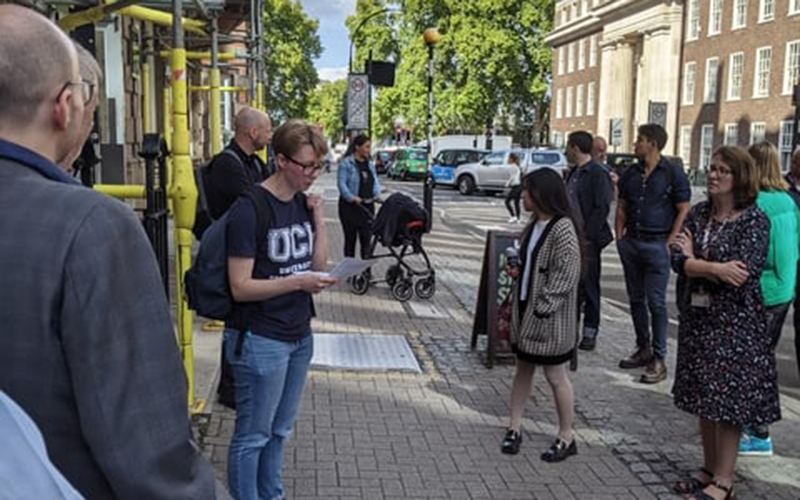Fear and amazement: Writing a queer history dissertation
By IOE Blog Editor, on 23 June 2023

Molly giving a tour. Image permission: Molly Edwards.
By Molly Edwards, Education Studies BA
*From the 2024/2025 academic year onwards, the Education Studies BA has been renamed the Education, Society and Culture BA.
I realised over the past year that a lot of my academic outputs have involved me holding my breath, either out of amazement or fear. In the two blog posts I wrote for the UCL Student’s Union last September, I reflected on my Education, Practice and Society Research Fellowship, which involved researching the queer history of UCL under the supervision of Professor Georgina Brewis as a small part of her Generation UCL project. In my first post, I discussed my amazement of the UCL Special Collections archive. In my second post, I noted my fears of sharing my queer history tour of UCL with historians.
After my experience with the archives and my plea to others to research them further to create a more comprehensive queer history, I was drawn to write my dissertation on UCL’s queer history. This is not because I was fully confident in my abilities (hence my prior plea), but because I know the importance of this history from my personal experience. While writing the rationale for this, I realised that others felt the importance of this history in creating community and belonging. However, I was still worried that I would not be able to accurately represent the history, even after I had narrowed the time frame down to the 1970s. An added pressure was that I also decided to include the history of LSE, so my topic became, ‘Queer student political and social organization at University College London and London School of Economics from 1970 to 1979.’ I found the only way to resolve my worries about representation was to draw on the lessons of established queer scholars and continually question my motives for writing this history. I had to do this before I could begin to accept that I could be the right person to approach my topic. (more…)
 Close
Close


